#averof
Explore tagged Tumblr posts
Text
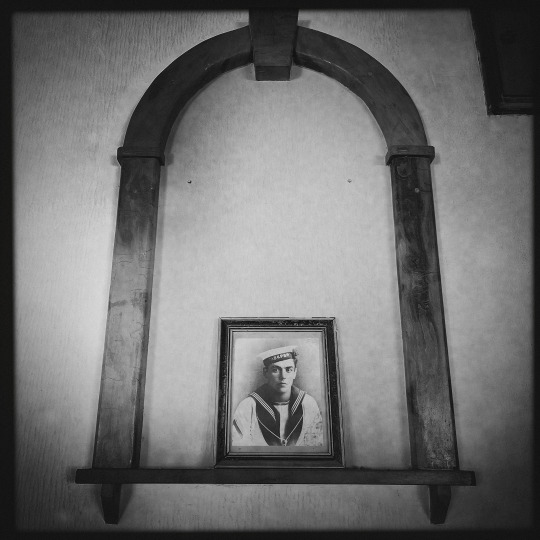
Sailor, Lithi, Chios, Greece, 2024
#Sailor#Lithi#Chios#Hipstamatic#iPhoneography#Iphone13#BlackandWhite#JohnPerivolaris#Greece#SIlverEfexPro2#Photograph#Averof
3 notes
·
View notes
Note
What do greeks (lke the totally hellenic ones) thinks of their ethnic minorities like aromanians, pomaks, romas, slavs and arvanites/albanians ? Are they still culturally differents and identify with their ethnicity or are they fully assimilated and their background is just a funfact ?
This depends on the minority. It also depends on the way the minority perceives itself. The situation differs for each of them so I have to write for them separately.
Aromanians or Vlachs
The Vlachs are one of the two most seamlessly integrated minorities in the Greek society. In fact, they were entirely fused and vibing with the Greek cause even before the break of the Independence War in 1821 and the creation of the Modern Greek State, in which they were very involved as well. The origins of the Vlachs are not yet understood. Despite theories being built in other neighbouring Balkan countries and Romania suggesting the Vlachs descended at some point from the Romanian region to Greece, there has not been any such documented migration that can be confirmed. The Vlachs have been in Greek or, rather, Byzantine territory since at least the 11th century, they historically speak the Aromanian language, which is derived from Vulgar Latin like all Romantic languages and has a lot in common with Romanian, and they prospered by living in the mountains and practicing husbandry. Their unclear origins, their Greek Orthodox faith and their significant integration long before Greece was even a sovereign state has led to the perception of the minority as a linguistic one rather than an ethnic one. A lot of Vlachs in Greece view themselves as originally Greeks who switched to Latin after the Roman conquest of the Greek lands and just remained Romantic speaking ever since, although this too is a totally unconfirmed theory. Another theory, also unconfirmed, is that they were some last Latin-speaking Romans who remained as such even after the increasingly Hellenic character of the Byzantine empire. In any case, most of them identify strongly with the Greek ethnic identity in the last centuries. The use of the Aromanian language is severely endangered. Just to draw a picture, a few years ago a minister (I think) suggested the teaching of the Aromanian language in schools for the Vlach students. The Vlach community itself objected (!) to this claiming that this would create a perception of a different ethnicity about them. This is not to say that everyone thinks like that but the vast majority do. Vlachs have been the butts of jokes in the Greek society, stereotyping them as too rural and primitive, probably due to them historically being mountain farmers and shepherds. In serious contexts, however, they are respected and a lot of Vlachs have had great positions of power in politics. It should also be noted that some of the biggest benefactors of the Greek State have been Vlachs, such as Georgios Averof (1815 - 1899), who made enormous donations in the Greek minority community of Egypt, funded the largest Technical University of Greece (which since then bears the name of his birthplace Metsovo), other schools, conservatories, the Evelpides School (Highest Military School), restored the ancient Panathenaic Stadium and most famously gave 2.5 million francs to the Greek Navy, with which the famous Greek cruiser Averof was built. That guy was definitely not raising an ethnicity question...
In case you think I am exaggerating:

In simple words, it's not the non-Vlach Greeks but it is actually the Vlachs themselves who are angered by the notion that they are a minority in Greece. Most Vlachs reside in Greece but most Vlachs of other countries do not have a Greek sentiment. There are two sides to this story that should be taken into account though: of course historically most Vlachs lived in a region which was largely Greek-speaking and Greek Orthodox which would explain why Greek Vlachs in particular have developed a robust ethnic Greek identity. On the other hand, neighbouring Balkan countries which have had strained relations with Greece actively discouraged their local Aromanian communities to identify as having any sort of connection to the Greeks. Compare this to the non-neighbouring Serbia, with which Greece always had good relations, where the Aromanian population of the 19th century was bilingual in Greek and Aromanian and they were often called "Grci" (Greeks) by the Serbs.
This is not to speak on the behalf of the Aromanians or claim they are this or that, I am only trying to show how nuanced the situation is and how differently it might be viewed depending on who's doing the talking.


Photos of Vlachs from Vlach sites.

Georgios Averof and the Greek cruiser named after him.
Pomaks
Pomaks are an unfortunately forgotten community in the greater forgetfulness of the Greek state when it comes to the region of Thrace. Pomaks are Muslim speakers of a Bulgarian dialect, inhabiting Greece, Bulgaria and Turkey. The problem is that both Turkey, out of expansionism, and Greece, out of stupidity and stereotypes, tend to perceive whomever is Muslim as a "Turk". Furthermore, the Greek society seems to be a little cautious with them due to their stricter religious beliefs. As a result, the Greek state uses the Turkish language (!!!) in Pomak schools and for the practice of Islam instead of the Pomak or at least the Greek as being the state language (using Greek to practice Islam?????? You can hear the sound of millions of Greeks dropping unconscious to the floor at the mere thought). This has led to the turkification of the Pomak community, which however has been noticed and Pomak themselves raise concerns over it. When Turkey tried to exploit this by sending the previous minister of Foreign Affairs for a diplomatic trip there, the Pomaks declared him as persona non grata and declared themselves as "Pomak Muslims and Greek citizens". The Turkish minister eventually cancelled his plans to visit. Greek Pomaks tend to be a little isolated and inwarded and have few interactions with the Pomaks of Bulgaria and Turkey. So far to my knowledge, they seem to identify as Pomak and not view it as a Bulgarian cultural minority, like Bulgarian Pomaks do. Greek Pomaks do not seem to have any particular demands, except for the Greek society to eventually view them properly as actual Greek citizens. Hellenic Greeks are not negative towards Pomaks, they just know too little about them and make misconceptions. Pomaks are of course distinct culturally, religiously and lingually than most Greek nationals.

Pomak girls

Ideological positions of Zagalisa, the oldest Pomak newspaper in Greece. From its website.
Roma
The Romani are one of the largest and in many ways diverse minorities in Greece. It is certainly also one of the most marginalised. Roma are a primarily nomadic people and so they are dispersed throughout the country. Romani people have lived in Greek territories since the 15th century. Greek Roma show great diversity in how much they are integrated into Greek society, how involved they generally are in Greek matters and how much they follow the Romani versus Greek customs / lifestyle . They speak Romani and Greek or Romano-Greek or other smaller Romani dialects. Most are actually pretty pious Greek Orthodox believers nowadays but a few also constitute a Muslim minority in Thrace. As a result of neglect by the state, among other factors, the Romani communities in Greece face several problems including high rates of child labour and abuse, low school attendance, police discrimination and drug trafficking. The most serious issue is the housing problem since many Roma in Greece still live in tents, on properties they do not own, making them subject to eviction. In the past decade these issues have received wider attention and some state funding. Roma people definitely face discrimination. Due to this and maybe also due to their own desire to keep their own culture intact, some have less than ideal relations to the rest of the Greek citizens. On the other hand, there are also many Roma who have successfully developed a Greco-Romani sense of identity and have an according lifestyle. Many Roma have prospered and become famous in the artistic fields, especially in the music industry. There are many Greek Roma that are famous and very loved musicians and singers.


A few Greek celebrities with full or partial Romani ancestry.

Greek Roma in a protest for their human rights in 2014.
Slavs of Macedonia
By Slavs, I suppose you meant the Slavic locals residing in Macedonia and not generally all people from Slavic countries who have migrated to Greece. The Slavic minority of Macedonia is certainly a most sensitive topic in this post, due to the bad relations of Greece with the Republic of North Macedonia. First of all, most of the Slavic inhabitants of Macedonia were moved or deported to Bulgaria and Serbia / Yugoslavia (later turned to Republic of North Macedonia) during the Macedonian Struggle and the Balkan Wars, just like Greeks of these regions were moved / deported to Greece. The remaining numbers are very small. Nowadays, most of them are entirely Greek passing, speaking Greek usually as their first language, having Greek names and surnames and in general being mostly indistinguishable from other Greeks. Their Slavic heritage is evident through their knowledge of the local South Slavic dialect, which they might use with each other and within their families (but are hesitant to do so in front of other Greeks) and some local customs that are Slavic in origin. People of Slavic heritage in Macedonia generally fall into two categories, to my understanding: a) a group of people who generally agree with the perception of the Republic of North Macedonia of the existence of a "Macedonian" ethnic identity and a "Macedonian" language, a position that both Greece and Bulgaria oppose to and Greece also views as irredentist propaganda. My perception however is that most of these people who are Greek citizens do not follow the extreme rhetorics of NM in that they are supposedly the true inheritors of Macedonia or that the Ancient Macedonian history / legacy belongs (exclusively) to them. Most Macedonian Slavs of Greece do not deny the legitimacy of the Greek presence and historicity in Macedonia since antiquity, they just wish for the recognition of their language as a minority language of the region and expect the rights that come with it. Neither do they seem to wish that Macedonia should be part of the Republic of North Macedonia instead. I am not saying that's all of them, because on the Greek and generally on the Balkan internet and social media you will hear just about everything, but the majority generally seems to fall along those lines. The Greek state does not recognize them and their language as a minority yet, stumbling onto the huge obstacle of it being called "Macedonian". You know, it's the notorious "name issue". A few individuals have formed a political party but it is of no consequence as at its hayday it gathered percentages of 0,09-0,11% on a national level and a maximum of 5,7% in the region in which most of the Slavs of Macedonia are concentrated.
b) The second category of people of Slavic heritage in Macedonia might actually be bigger but I only recently became aware of them. Those seem to be descendants of the Grecomans or later embracing their heritage through a Grecoman perspective. Here it should be noted that the term "Grecoman" is pejorative in neighbouring Balkan countries where it was coined, literally meaning "Greek maniacs", but it is embraced in Greece. In short, the Grecomans were locals of Macedonia and Thrace who indentified as Greeks and fought in favour of Greece during the Macedonian Struggle and the Balkan Wars even though they appeared to be fully or partially non-Greek culturally and linguistically. While it was mostly for people of Slavic heritage, it was also used for people speaking Albanian or Aromanian (see above) as a first language. The Grecomans were accused by the neighbour countries as "pretending to be Greeks" and "not real Greeks" because apparently the right to self-determination suddenly does not apply if you're claiming to be Greek in particular. People embracing the "Grecoman" stance nowadays accept that Macedonia was at some point influenced by the Slavs due to their appearance in the region in the Middle Ages or later due to the multi-cultural character of the Ottoman Empire that inescapably also influenced the pre-existing local Greek populations there. As a result, the Grecomans view themselves as ethnic Greeks who were significantly culturally and linguistically influenced by Bulgarians and other South Slavic populations over the course of the last centuries. They do respect their Slavic idiom and Slavic traditions but they view them as elements of a greater and more diverse Greek cultural tapestry, due to the historical influence Greek people have received from others. I don't know how accurate all this is, however it is certain that this happened to some degree, meaning that Greeks were slavicized, just like Bulgarians and other Slavs also got hellenized, due to the extensive interactions of those populations in Byzantine and Ottoman times.
Therefore the minority of Slavic speakers of Macedonia differ in their perception of their identity; some compose a distinct ethnic minority that is at odds with the rest of the Greeks (although also most not really feeling represented by the Republic of North Macedonia and its positions either) and some identify as ethnic Greeks who compose a distinct cultural minority.
It is perhaps telling both for the sensitivity of the topic but also their small numbers that I cannot find photos of them making gatherings like I did with the other minorities. I only find historical photos of Grecomans.

Arvanites
In your mail you wrote Arvanites / Albanians which is not totally accurate because these two communities are perceived totally differently in Greece and they also perceive themselves totally differently in terms of their identity and role in the country. Arvanites are Greeks of a now basically distant Albanian origin. The first Arvanites came to the Greek territories around the 13th-14th centuries from the region of Arbanon in modern-day South Albania, which of course also was a part of the Byzantine Empire at the time, with phases of being an autonomous principality, where also ethnic Greeks have been present all this time as well. Arvanites were Greek Orthodox Christians and they spoke a dialect of Tosk Albanian with Greek influences. It is unclear how they exactly viewed themselves in those early centuries but by the 19th century they had merged significantly with other Greeks and they were all bilingual in Greek and Tosk Albanian. Arvanites managed to preserve their language and some of their traditions by establishing several Arvanite-core settlements mostly in South-Central Greece. However, their common faith and often common uprisings against the Ottoman Turks made them interact and marry with other Greeks beyond their minority communities, to the point that nowdays most are mixed. Many of the Greek Independence warriors that Albanian nationalists altogether call Albanians nowadays were of half-Arvanite and half-other Greek ancestry. (Of course many were also not Arvanites at all to begin with but Albanian nationalists kinda also call Ancient Greek gods as Albanians so there's that... you know, Balkans, you gotta be careful.) Even those who were indeed Arvanites spoke extensively and very proudly of the Greek / Hellenic cause and the "fatherland Hellas". Many of the Greek warriors left detailed documentation with letters and memoirs behind and the truth as well as the perception of their own identity can be easily traced in those. Furthermore, in the Ottoman army the soldiers a lot of the times were not actually Turks but rather Egyptian subjects and Albanian mercenaries. Arvanites were fighting therefore alongside other Greeks against Albanians of the Ottoman army. Another thing to be considered is that across the centuries of Byzantine and Ottoman power there were no national borders between the regions of Greece and Albania. The strong similarities between Greek, Albanian and the in-between Arvanite fighters in the Ottoman Empire can be very easily explained due to their very significant interaction and cohabitation. This is why Greeks and Albanians of the time and the Arvanites of course, especially those fighting in the mountains, were knowledgeable in each other's languages without this raising any ethnic or identity questions for either, however people nowadays find it very hard to wrap their minds around these totally different conditions of borderless co-existence within nearby regions of a vast empire. As said above, Arvanites were already Greek Orthodox and Greek speakers (in addition to the Tosk Albanian dialect) for long before the break out of the Independence War. As a result, after the establishment of the Modern Greek State, the Arvanites were never viewed as foreigners or a separate minority or Albanians in the way the people of Albania are perceived. Furthermore, due to all the reasons presented above in short their cultural expression does not differ significantly from Greek cultural expression. Their costumes and songs don't differ much more than other Greek costumes and songs differ from one another. Consequently, the Arvanites are hardly considered a minority but if we must call them as such, then they generally fall into a linguistic minority category more because this is their most notable difference from other Greeks. The Arvanite dialect is severely endangered nowadays however, let alone that most Arvanites spoke Greek fluently even before the independence. Other than that the Arvanites take pride and look after their traditional costumes, songs and dances.
Again, on the Internet and social media you can find just about anything, including Arvanites siding with Albanian nationalists in thinking their community is oppressed by the Greek state but also more moderate Albanians who argue that everything in the Arvanite history shows that for the last centuries they are closer and more similar to Greeks than to Albanians. I have encountered both types of people on the Internet. In real life, however, so far Arvanites seem to identify as Greeks and take pride for their contribution to Greek history. Other Greeks also overwhelmingly consider Arvanites Greeks, not in order to distance them from the Albanians (although some might do it for this reason too) but because they genuinely perceive them as indistinguishable from Greeks. As for those, usually Albanians, who think Arvanites are oppressed by the Greeks, I will just say that Greece had Arvanite PMs and ministers since the foundation of the modern state, who could have favoured the Albanian presence right then and there, if they had such concerns. People just don't want to entertain whatever does not fit their ethnic if not nationalist narrative which likes to fit things in distinct boxes. Arvanites fought for Greek independence and had already mixed with the rest of the Greeks in the modern state by the early 19th century - the Albanian national idea for independence from the Ottoman Turks and the formation of an Albanian state was first shaped in late 19th century. In short, Arvanites truly have genes and heritage from both Greeks and Albanians, and that's about it. Whoever says something different is fooling themselves.


Arvanites and painting inspired by the Death of Markos Botsaris, the most famous Arvanite Greek Independence fighter (who was indeed an Arvanite).
Pressing "post" with a prayer, this can get me hate from both Greeks and non-Greeks....I genuinely believe I spoke the truth, or whatever is closest to the truth.
#greece#minorities#history#greek history#minorities of greece#greek facts#anon#ask#long post#tw long
34 notes
·
View notes
Note
You’re a maritime historian, so:
Do you have a favorite museum ship (or favorite ship in general)?
Mine’s Midway, since that ship’s the whole reason I decided to pursue a history degree in the first place (and the ship’s historian even taught my history of WW2 class in my Junior year at university!)
favourite ship is my url (DD-219)
favourite museum ship is the Hellenic Navy's Georgios Averof
4 notes
·
View notes
Photo

Athens, Greece
4 notes
·
View notes
Link
0 notes
Link

The historic ship “Georgios Averof” which served as the Greek flagship during most of the first half of the last century, arrived back at Trocadero quay, next to Faliro Marina on Wednesday.
It returned to her permanent berth after the successful completion of the planned maintenance and repair works carried out at nearby Skaramagas shipyards.
Dozens of boats belonging to private individuals and sailing clubs accompanied the battleship to Faliro.
Although popularly known as a battleship in Greek, she is in fact an armored cruiser, the only ship of this type still in existence.
5 notes
·
View notes
Note
Hey i heard that you are a sea country so what's your favourite ship :D


The Armored Cruiser Averof

We’ve really been through a lot together.She’s a true beauty isn’t she?
#aph#hetalia#Axis Powers Hetalia#hetalia axis powers#Axis powers ヘタリア#hetalia greece#aph greece#heracles karpusi#hetalia ask blog#aph ask blog#drawn answer#history & monuments#armored cruiser averof#averof
19 notes
·
View notes
Photo


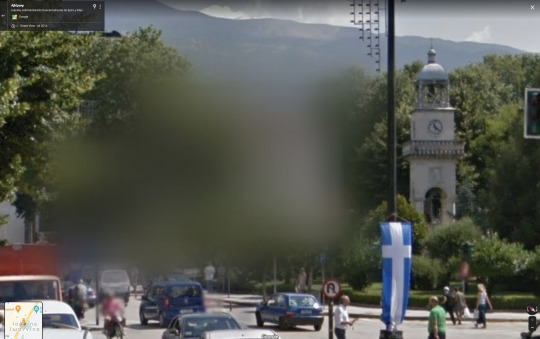
Τοπίο στην ομίχλη / Landscape in the Mist Theodoros Angelopoulos. 1988
Square Averof, Ioannina 452 21, Greece See in map
See in imdb
#theo angelopoulos#landscape in the mist#tania palaiologou#stratos tzortzoglou#michalis zeke#square#movie#cinema#film#ioannina#greece#location#google maps#street view#1988#clock tower
26 notes
·
View notes
Photo


Armored cruiser Georgios Averof, built in 1907, the only ship of this type still in existence - a floating museum, during its stop at Thessaloniki
Ig: duke_valentino
54 notes
·
View notes
Photo

7 notes
·
View notes
Photo
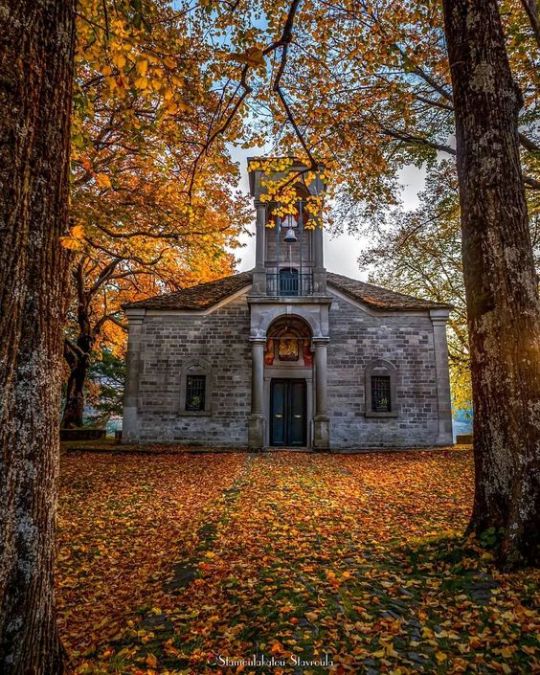
Church of Saint George in Averof Gardens, Métsovo, Greece by Stavroula Stamoulakatou.
#greece#europe#fall#autumn#travel#wanderlust#church#christianity#garden#religion#fallen leaves#averof gardens#metsovo#ioannina#epirus#mainland#large
325 notes
·
View notes
Photo

Greeks waiting eagerly to greet relatives and friends serving in the Greek cruiser GEORGE AVEROFF soon after she arrived at Piraeus. © IWM (A 26355)
28 notes
·
View notes
Text
2023 Pritzker Prize Laureate Lecture & Panel Discussion - YouTube
2023 Pritzker Prize Laureate Lecture & Panel Discussion Tuesday May 23 2023, 15.45 Lisandros Kaftantzoglou Hall. Averof building, NTUA Patission Campus NTUA School of Architecture
View On WordPress
#2023 Pritzker Prize Laureate Lecture#Atenas#David Chipperfield#Online#Panel Discussion#Video#YouTube
2 notes
·
View notes
Text

Greece orders additional Rafale jets
The Greek government also acquired three Belharra frigates with France.
Fernando Valduga By Fernando Valduga 03/26/22 - 11:30 AM in Military
On March 24, Greece signed an agreement for the acquisition of six additional Rafale fighter jets, bringing the number of Rafale jets ordered from the Hellenic Air Force to 24.
Eric Trappier, President and CEO of Dassault Aviation, and Vice Admiral Aristidis Alexopoulos, Director General of Armaments and Investments of the Greek Ministry of Defense, signed in Athens, in the presence of Florence Parly, French Minister of the Armed Forces, and Nikolaos Panagiotopoulos, Greek Minister of National Defense, a contract for the acquisition of six new additional Rafale aircraft, Dassault Aviation said in a statement.
This new contract, which follows the acquisition of 18 Rafale by Greece in January 2021, will increase the number of Rafales operated by the Hellenic Air Force to 24.
The first six Rafale of the Hellenic Air Force arrived at Tanagra Air Base on January 19, 2022. The 18 Rafale related to the first contract will be fully implemented in Greece by the summer of 2023. The additional six Rafale will then be delivered to the Hellenic Air Force soon after, starting in the third quarter of 2024.
As a European country and a member of NATO, Greece is a great strategic ally of France. Dassault Aviation is honored by the Greek government's decision to proceed with this new Rafale request, which extends over almost fifty years of uninterrupted partnership.

This additional request reflects the great satisfaction of the Greek government with the operational qualities of the Rafale, as well as its determination to strengthen the combat capabilities of the Hellenic Air Force to ensure the sovereignty of the country and ensure the safety of its population in an increasingly unstable geopolitical context.
"This new contract demonstrates the Greek government's confidence in the Rafale, which is already actively contributing to ensuring Greece's sovereignty and operational independence. Once again, I am honored by the Hellenic Air Force's renewed confidence in Dassault Aviation, reflecting almost half a century of unwavering partnership. I would also like to assure the Greek authorities of our full commitment to fully meet their expectations," Eric Trappier said after the signing ceremony.
The two countries also signed another contract for the acquisition of three Belharra frigates for the Hellenic Navy on Thursday. The signing ceremony was held aboard the battleship Georgios Averof, permanently anchored as a museum in Paleo Faliro, a coastal suburb south of Athens.
According to the defense agreement signed in October 2021, the Hellenic authorities signed two contracts with the Naval Group for the supply of three Defense and Intervention Frigates (FDI HN), plus an optional one, as well as their support in service. The contracts also include the supply of MU90 torpedoes and CANTO countermeasures.
Built by the Naval Group, two warships are expected to be delivered in 2025 and the third the following year, with the option of adding a fourth frigate to be ready in 2027.
Tags: Military AviationDassault AviationDassault RafaleHAF - Hellenic Air Force / Greek Air Force
Fernando Valduga
Aviation photographer and pilot since 1992, he has participated in several events and air operations, such as Cruzex, AirVenture, Dayton Airshow and FIDAE. He has works published in a specialized aviation magazine in Brazil and abroad. He uses Canon equipment during his photographic work in the world of aviation.
Cavok Brasil - Digital Tchê Web Creation
9 notes
·
View notes
Text
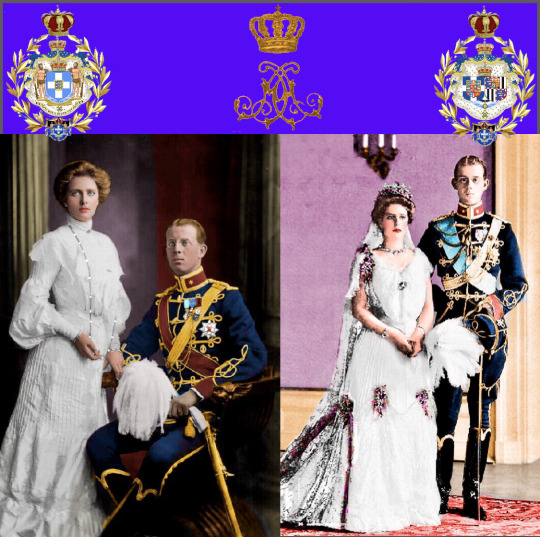
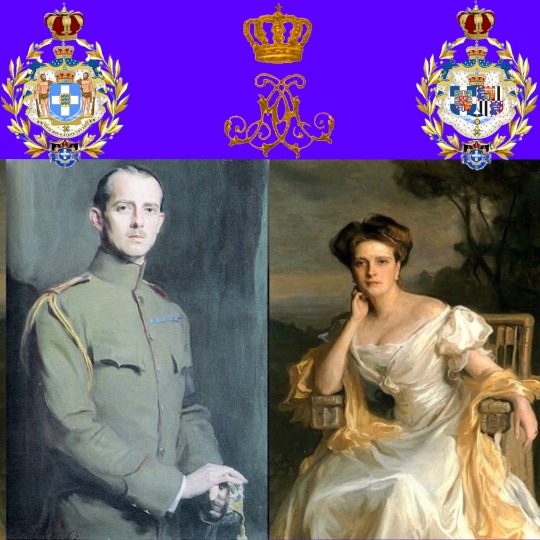
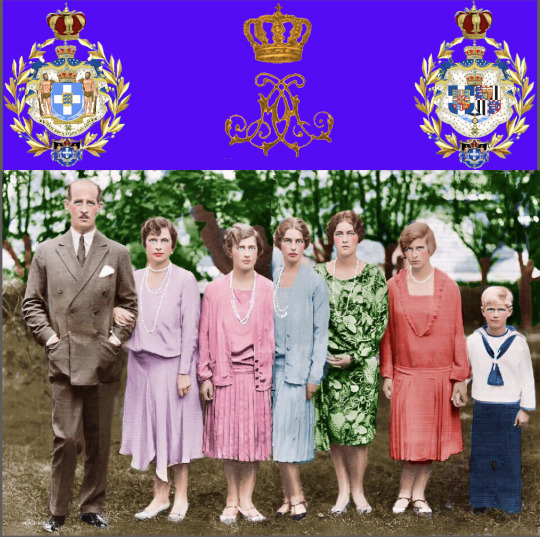
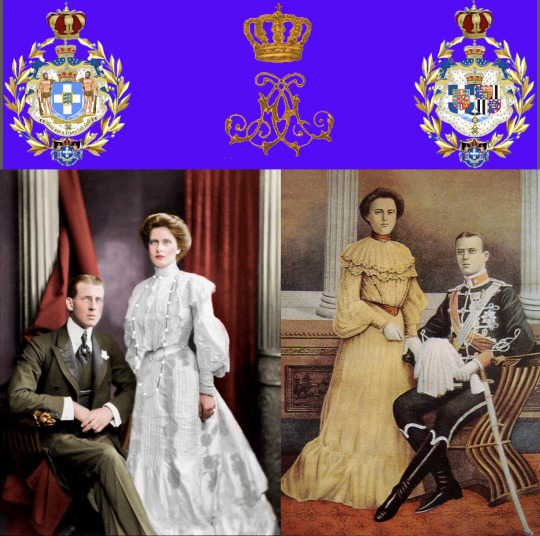
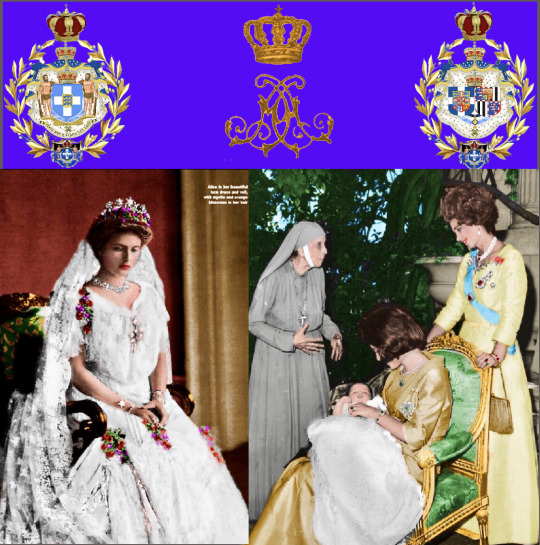

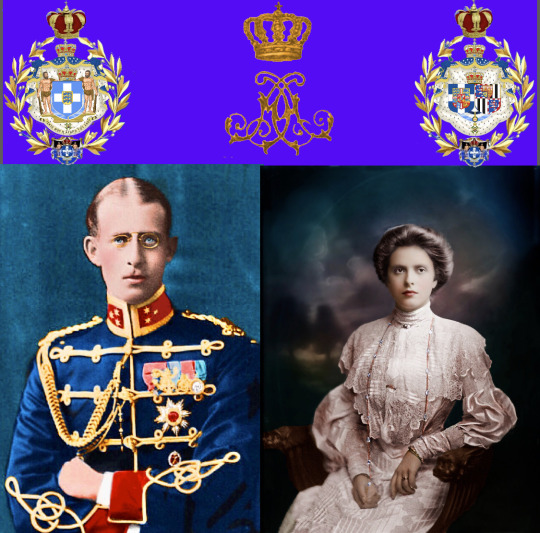
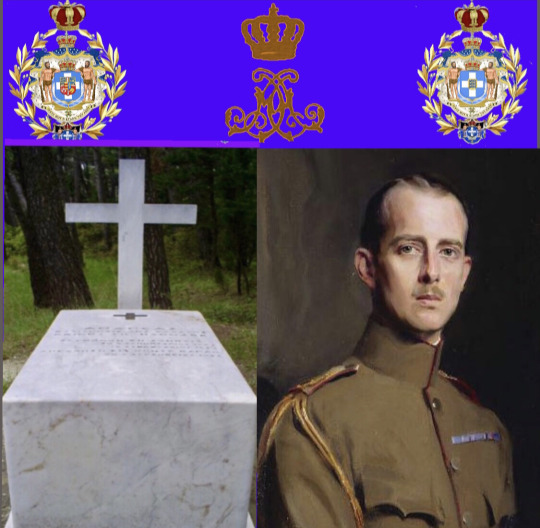
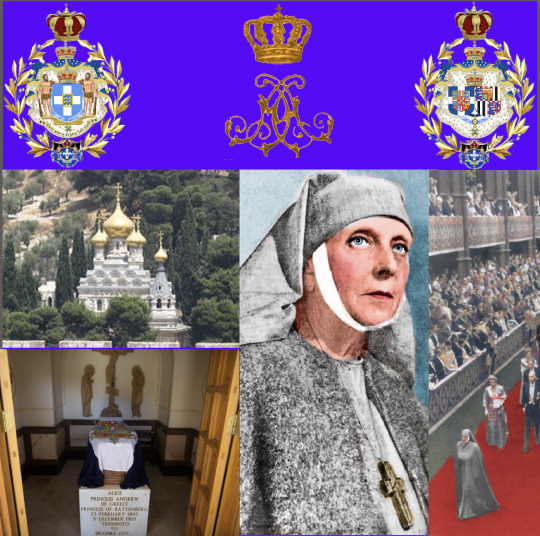
Last Friday was 77 years since the death of HRH Prince Andrew of Greece and Denmark in 3 December 1944
And today is
52 years since the death of HRH Princess Alice of Greece and Denmark née HRH Princess Victoria Alice Elizabeth Julia Marie of Battenberg in 5 December 1969
Prince Andrew was a Prince of the House of Schleswig-Holstein-Sonderburg-Glücksburg, he was the seventh child and fourth son of King George I of Greece and Olga Constantinovna of Russia. He was a grandson of Christian IX of Denmark and father of Prince Philip, Duke of Edinburgh. He was a prince of both Denmark and Greece by virtue of his patrilineal descent.
In 1902, Prince Andrew met Princess Alice of Battenberg during his stay in London on the occasion of the coronation of King Edward VII, who was his uncle-by-marriage and her grand-uncle. Princess Alice was a daughter of Prince Louis of Battenberg and Princess Victoria of Hesse and by Rhine, King Edward's niece. They fell in love, and the following year, on 6 October 1903, Andrew married Alice in a civil wedding at Darmstadt.The following day two religious wedding services were performed: one Lutheran in the Evangelical Castle Church, and another Greek Orthodox in the Russian Chapel on the Mathildenhöhe.
Prince and Princess Andrew had five children,
Margarita, Princess of Hohenlohe-Langenburg Theodora, Margravine of Baden
Cecilie, Hereditary Grand Duchess of Hesse and by Rhine
Sophie, Princess George of Hanover
Prince Philip, Duke of Edinburgh
all of whom later had children of their own
Prince Andrew died in the Hotel Metropole, Monte Carlo, Monaco, of heart failure and arteriosclerosis in the closing months of the war in Europe. Andrew was at first buried in the Russian Orthodox church in Nice, but in 1946 his remains were transferred, by the Greek cruiser Averof, to the royal cemetery at Tatoi Palace, near Athens.Prince Philip and then-private secretary, Mike Parker, traveled to Monte Carlo to collect items belonging to his father from Andrée de La Bigne; among these items: a signet ring which the Prince wore from then onwards, an ivory shaving brush he took to using, and some clothes he had adapted to fit him. Prince Andrew left to his only son seven-tenths of his estate, but he also left behind a debt of £17,500, leading Philip's maternal grandmother, Victoria, Marchioness of Milford Haven, to complain bitterly of the extravagance the Greek prince had been led into by his French mistress
Princess Alice was the mother of Prince Philip, Duke of Edinburgh, and mother-in-law of Queen Elizabeth II.
A great-granddaughter of Queen Victoria, Alice was born in Windsor Castle and grew up in Great Britain, Germany and Malta. A Hessian princess by birth, she was a member of the Battenberg family, a morganatic branch of the House of Hesse-Darmstadt. She was congenitally deaf. After marrying Prince Andrew of Greece and Denmark in 1903, she adopted the style of her husband, becoming Princess Andrew of Greece and Denmark. She lived in Greece until the exile of most of the Greek royal family in 1917. On returning to Greece a few years later, her husband was blamed in part for the country's defeat in the Greco-Turkish War (1919–1922), and the family was once again forced into exile until the restoration of the Greek monarchy in 1935.
In 1930, Princess Andrew was diagnosed with schizophrenia and committed to a sanatorium in Switzerland; thereafter, she lived separately from her husband.
Despite suggestions of senility in later life, Princess Andrew remained lucid but physically frail.She died at Buckingham Palace on 5 December 1969. She left no possessions, having given everything away. Initially her remains were placed in the Royal Crypt in St George's Chapel at Windsor Castle on 10 December 1969,but before she died she had expressed her wish to be buried at the Convent of Saint Mary Magdalene in Gethsemane on the Mount of Olives in Jerusalem (near her aunt Grand Duchess Elizabeth Feodorovna, a Russian Orthodox saint). When her daughter, Princess George of Hanover, complained that it would be too far away for them to visit her grave, Princess Andrew jested, "Nonsense, there's a perfectly good bus service!" Her wish was realized on 3 August 1988 when her remains were transferred to her final resting place in a crypt below the church.
On 31 October 1994, Princess Andrew's two surviving children, the Duke of Edinburgh and Princess George of Hanover, went to Yad Vashem (the Holocaust Memorial) in Jerusalem to witness a ceremony honouring her as "Righteous Among the Nations" for having hidden the Cohens in her house in Athens during the Second World War. Prince Philip said of his mother's sheltering of persecuted Jews, "I suspect that it never occurred to her that her action was in any way special. She was a person with a deep religious faith, and she would have considered it to be a perfectly natural human reaction to fellow beings in distress. In 2010, the Princess was posthumously named a Hero of the Holocaust by the British Government
Την περασμένη Παρασκευή συμπληρώθηκαν 77 χρόνια από τον θάνατο Της ΑΒΥ Πρίγκιπα Ανδρέα της Ελλάδας και της Δανίας στις 3 Δεκεμβρίου 1944 και 52 χρόνια από τον θάνατο της AΒΥ Πριγκίπισσας Αλίκης της Ελλάδας και της Δανίας, πριγκίπισσα Βικτωρια Αλικη Ελισσαβετ Ιουλια Mάρια του Μπατενμπεργκ , στις 5 Δεκεμβρίου 1969
Ο πρίγκιπας Ανδρέας ήταν Πρίγκιπας του Οίκου Σλέσβιχ-Χόλσταϊν-Σόντερμπουργκ-Γλύξμπουργκ, ήταν το έβδομο παιδί και ο τέταρτος γιος του βασιλι�� Γεωργίου Α' της Ελλάδας και της Όλγας Κωνσταντίνοβνα της Ρωσίας. Ήταν εγγονός του Χριστιανού Θ' της Δανίας και πατέρας του πρίγκιπα Φιλίππου, δούκα του Εδιμβούργου. Ήταν πρίγκιπας τόσο της Δανίας όσο και της Ελλάδας λόγω της πατρογονικής του καταγωγής.
Το 1902, ο πρίγκιπας Ανδρέας συνάντησε την πριγκίπισσα Αλίκη του Μπάτενμπεργκ κατά τη διάρκεια της παραμονής του στο Λονδίνο με αφορμή τη στέψη του βασιλιά Εδουάρδου Ζ', ο οποίος ήταν θείος του από γάμο και θείος της. Η πριγκίπισσα Αλίκη ήταν κόρη του πρίγκιπα Λουδοβίκου του Μπάτενμπεργκ και της πριγκίπισσας Βικτώριας της Έσσης και από τον Ρήνο, ανιψιά του βασιλιά Εδουάρδου. Ερωτεύτηκαν και τον επόμενο χρόνο, στις 6 Οκτωβρίου 1903, ο Ανδρέας παντρεύτηκε την Αλίκη σε πολιτικό γάμο στο Ντάρμσταντ. Την επόμενη μέρα τελέστηκαν δύο θρησκευτικοί γάμοι: ένας Λουθηρανικός στην Εκκλησία του Ευαγγελικού Κάστρου και ένας άλλος Ελληνορθόδοξος στη Ρωσική Παρεκκλήσι στο Mathildenhöhe.
Ο πρίγκιπας και η πριγκίπισσα απέκτησαν πέντε παιδιά,
Μαργαρίτα, Πριγκίπισσα του Hohenlohe-Langenburg Theodora, Margravine of Baden
Κεκιλια Μεγάλη Δούκισσα της Έσσης και του Ρήνου
Σοφία, πριγκίπισσα Γεώργιου του Ανόβερου
Πρίγκιπας Φίλιππος, Δούκας του Εδιμβούργου
όλοι τους αργότερα απέκτησαν δικά τους παιδιά
Ο Πριγκιπας Αντρεας Πέθανε στο ξενοδοχείο Metropole, στο Μόντε Κάρλο, στο Μονακό, από καρδιακή ανεπάρκεια και αρτηριοσκλήρωση τους τελευταίους μήνες του πολέμου στην Ευρώπη. Ο Ανδρέας αρχικά θάφτηκε στη ρωσική ορθόδοξη εκκλησία στη Νίκαια, αλλά το 1946 τα λείψανά του μεταφέρθηκαν, από το ελληνικό καταδρομικό Αβέρωφ, στο βασιλικό νεκροταφείο στο Παλάτι Τατόι, κοντά στην Αθήνα. Ο πρίγκιπας Φίλιππος και ο τότε ιδιωτικός γραμματέας, Μάικ Πάρκερ, ταξίδεψαν στο Μόντε Κάρλο για να συλλέξει αντικείμενα που ανήκουν στον πατέρα του από τον Andrée de La Bigne. Μεταξύ αυτών των αντικειμένων: ένα δαχτυλίδι με σφραγίδα που φορούσε ο Πρίγκιπας από τότε και μετά, μια βούρτσα ξυρίσματος από ελεφαντόδοντο που άρχισε να χρησιμοποιεί, και μερικά ρούχα που είχε προσαρμόσει για να του ταιριάζουν. Ο πρίγκιπας Άντριου άφησε στον μονάκριβο γιο του τα επτά δέκατα της περιουσίας του, αλλά άφησε επίσης πίσω του ένα χρέος 17.500 λιρών, με αποτέλεσμα η γιαγιά του Φίλιππου, Βικτόρια, Μαρκιόνια του Μίλφορντ Χ��ιβεν, να παραπονεθεί πικρά για την υπερβολή στην οποία είχε οδηγηθεί ο Έλληνας πρίγκιπας από τη Γαλλίδα ερωμένη του
Η πριγκίπισσα Αλίκη ήταν μητέρα του πρίγκιπα Φιλίππου, δούκα του Εδιμβούργου, και πεθερά της βασίλισσας Ελισάβετ Β'.
Δισέγγονη της βασίλισσας Βικτώριας, η Αλίκη γεννήθηκε στο κάστρο του Ουίνδσορ και μεγάλωσε στη Μεγάλη Βρετανία, τη Γερμανία και τη Μάλτα. Γεννημένη πριγκίπισσα της Έσσης, ήταν μέλος της οικογένειας Battenberg, ενός μοργανατικού κλάδου του Οίκου της Έσσης-Ντάρμσταντ. Ήταν εκ γενετής κωφή. Αφού παντρεύτηκε τον Πρίγκιπα Ανδρέα της Ελλάδας και της Δανίας το 1903, έγινε Η ΑΒΥ πριγκίπισσα Ανδρέα της Ελλάδας και της Δανίας. Έζησε στην Ελλάδα μέχρι την εξορία του μεγαλύτερου μέρους της ελληνικής βασιλικής οικογένειας το 1917. Επιστρέφοντας στην Ελλάδα λίγα χρόνια αργότερα, ο σύζυγός της κατηγορήθηκε εν μέρει για την ήττα της χώρας στον ελληνοτουρκικό πόλεμο (1919-1922) και Η οικογένεια αναγκάστηκε για άλλη μια φορά σε εξορία μέχρι την αποκατάσταση της ελληνικής μοναρχίας το 1935.
Το 1930, η πριγκίπισσα διαγνώστηκε με σχιζοφρένεια και κλειστηκε σε ένα σανατόριο στην Ελβετία. Στη συνέχεια, έζησε χωριστά από τον σύζυγό της.
Παρά τις προτάσεις για γεροντότητα στη μετέπειτα ζωή της, η πριγκίπισσα Άντριου παρέμεινε διαυγής αλλά σωματικά αδύναμη. Πέθανε στα Ανάκτορα του Μπάκιγχαμ στις 5 Δεκεμβρίου 1969. Δεν άφησε κανένα περιουσιακό στοιχείο, αφού έδωσε τα πάντα σε φιλανθρωπίες Αρχικά το λείψανό της τοποθετήθηκε στη Βασιλική Κρύπτη στο παρεκκλήσι του Αγίου Γεωργίου στο Κάστρο του Ουίνδσορ στις 10 Δεκεμβρίου 1969, αλλά πριν πεθάνει είχε εκφράσει την επιθυμία της να ταφεί στο μοναστήρι της Αγίας Μαρίας Μαγδαληνής στη Γεθσημανή στο Όρος των Ελαιών στην Ιερουσαλήμ ( κοντά στη θεία της τη Μεγάλη Δούκισσα Ελισάβετ Φεοντόροβνα, Ρωσίδα Ορθόδοξη αγία). Όταν η κόρη της, η πριγκίπισσα Σοφία Γεώργιου του Ανόβε��ου, παραπονέθηκε ότι θα ήταν πολύ μακριά για να επισκεφτούν τον τάφο της, η πριγκίπισσα Αλικη αστειεύτηκε: "Ανοησία, υπάρχει μια τέλεια υπηρεσία λεωφορείου!" Η επιθυμία της πραγματοποιήθηκε στις 3 Αυγούστου 1988, όταν τα λείψανά της μεταφέρθηκαν στο τελευταίο της μέρος σε μια κρύπτη κάτω από την εκκλησία.
Στις 31 Οκτωβρίου 1994, τα δύο επιζώντα παιδιά της πριγκίπισσας Αλικης ο δούκας του Εδιμβούργου και η πριγκίπισσα Σοφία τουΑνοβερου πήγαν στο Yad Vashem (το Μνημείο του Ολοκαυτώματος) στην Ιερουσαλήμ για να παρακολουθήσουν μια τελετή που την τιμούσε ως «Δίκαιη Ανάμεσα στα Έθν��» επειδή έκρυψε τους Κοέν. στο σπίτι της στην Αθήνα του Β' Παγκοσμίου Πολέμου. Ο πρίγκιπας Φίλιππος είπε σχετικά με το καταφύγιο της μητέρας του σε διωκόμενους Εβραίους: "Υποψιάζομαι ότι δεν της πέρασε ποτέ από το μυαλό ότι η δράση της ήταν με οποιονδήποτε τρόπο ιδιαίτερη. Ήταν ένα άτομο με βαθιά θρησκευτική πίστη και θα το θεωρούσε απολύτως φυσικό ανθρώπινη αντίδραση σε συνανθρώπους που βρίσκονται σε αγωνία
Το 2010, η πριγκίπισσα ονομάστηκε μετά θάνατον Ήρωας του Ολοκαυτώματος από τη βρετανική κυβέρνηση
#kingconstantine#danishroyalfamily#crownprincepavlos#queenannemarie#greek royal family#house of romanov#greekroyals#crownprincessmariechantal#danishroyals#princeconstantinealexios#princess theodora#princessmarieolympia#princeachileasandreas#princenikolaos#princesstatiana#princessalexia#princessnina#princesseirini#princeodyseaskimon#princearistidesstavros#princefilippos
3 notes
·
View notes